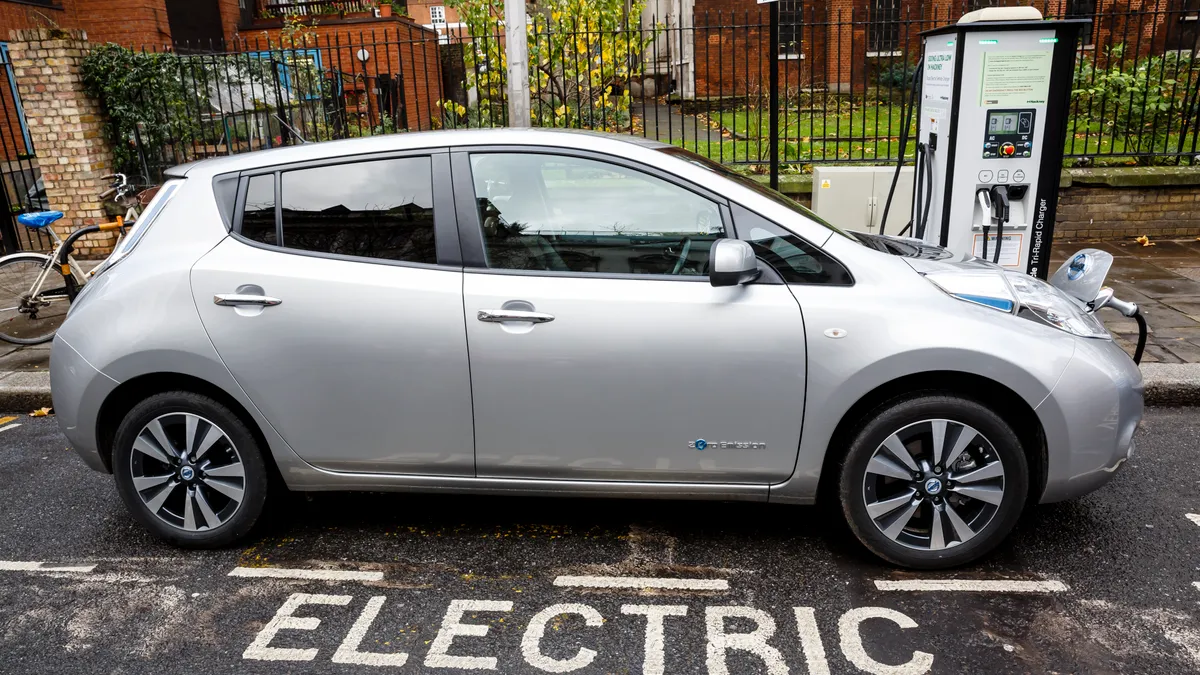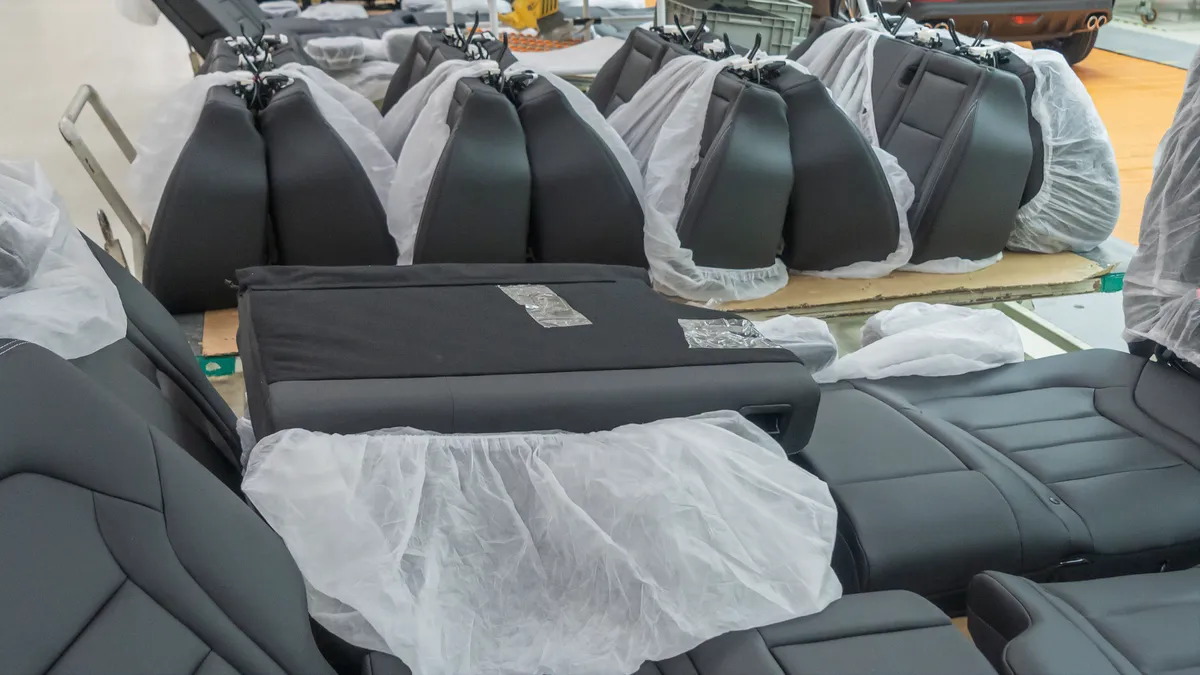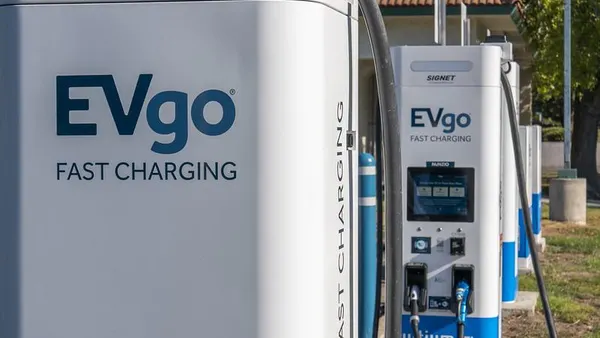Dive Brief:
- The American National Standards Institute, a nonprofit standards organization, has released a roadmap of recommended standards for electric vehicle deployment in the U.S., according to a press release Thursday.
- It includes 37 recommendations — with 14 deemed high-priority — targeted at automakers, local governments, utility companies and other organizations. It includes safety standards for EV batteries and residential charging infrastructure.
- The roadmap aims to strengthen coordination among public and private stakeholders to support safe EV deployment, warning that interoperability among public EV chargers and vehicles is essential for widespread adoption.
Dive Insight:
The report comes when the automotive industry remains highly segmented, with ongoing debates surrounding the adoption of uniform EV charging standards in the U.S. The roadmap’s development kicked off in 2021, with the U.S. Department of Energy seeking to identify and address challenges and barriers to widespread EV adoption in the U.S.
ANSI found that a lack of safety, environmental, power grid and other technical standards could slow EV adoption.
The roadmap recommends that automakers develop battery-design standards to improve safety and simplify battery recycling. A lack of battery-recyclability standards could hinder widespread EV deployment, the report says.
ANSI also recommends automakers adopt battery design standards that allow raw materials, such as lithium cobalt, nickel and aluminum, to be more easily recovered from used batteries. Recycling used EV batteries could reduce the need to mine raw materials and lower the risk of creating toxic, mining-related byproducts.
Making it easier to pay for charging, regardless of location, could also spur greater consumer demand for EVs. The roadmap recommends developing standards that allow EV drivers to locate a public charger and reserve it in advance with real-time availability and pricing information.
Tesla’s recent agreement to open its vast Supercharger network to GM and Ford may partially address these concerns, as the electric automaker already offers its customers this information. However, it’s unclear how the Supercharger network data will work with GM and Ford EVs.
Other recommendations to support the EV rollout include standards for cybersecurity and data privacy, residential charging safety and measuring EV charging energy use.
The roadmap was developed with the help of 80 individuals across 130 public and private organizations, including federal government agencies, national laboratories, the auto industry, academia and others.














